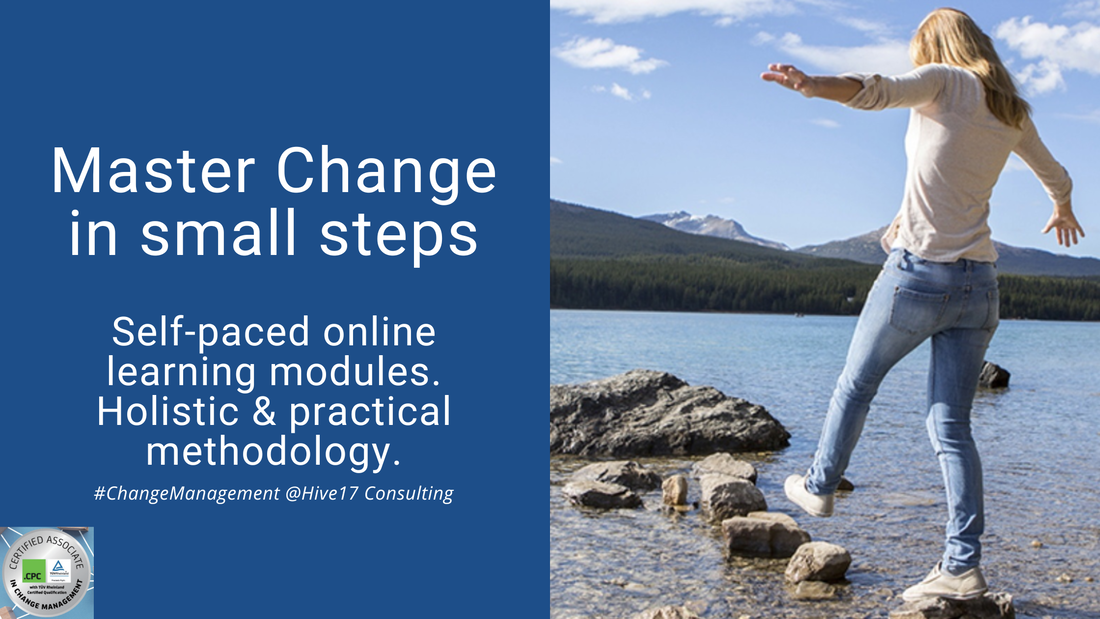|
Change Management is undoubtedly one of the key skills for leaders on all levels in the organisation. Change is THE constant in our business life and without looking at the people side of doing business, we will fail to achieve the results we are expecting. How are you structuring your change engagements? Where do you start your journey to become a change master? CPC Consulting and Hive17 Consulting are offering the Certified Associate in Change Management program here in Singapore and in the region. And now, we also provide you with an easy entry to the topic: two modules as self-paced online learning modules.
These modules give you a quick start based on a holistic and practical change management methodology. And this will be the foundation for the next level where you will apply the concepts hands-on. Find out more with the link below!
0 Comments
We all make mistakes - they simply happen. One apparent place are our text messages - we make numerous typos, right? Although, these errors happen everywhere - big and small. And most of the time, our intention was doing the right thing. It is important to keep in mind that these errors are part of being human. Don't blame others. In this context, I often like to mention that errors depend on the perspective. Switching to a mindset to take mistakes as a learning opportunity is highly useful. Today, I want to talk about how we can minimise these errors that happen despite our good intentions. I want to share a tactic, a routine that will help you to reduce these mistakes from happening. David Marquet in his book Turn the Ship Around mentions this in several chapters: Deliberate Actions. This tactic is helping to break the flow between intention and action. So, we have the intention to send good morning wishes to our friend. We take our phone and type the message and often the word 'mooring' appears - a small error. Hit send, and your friend is puzzled. Deliberate Action suggests to install a small pause: before hitting send, read your message again. A successful tactic and routine I have created for myself to avoid misunderstandings and embarrassments. And this only takes a few seconds! This can also be implemented with our peers, friends and colleagues at work. Before you hit action, pause and re-state your intention. Here a verbal example: "Hey, let's send out this invite for Friday, 12 July" - "Oh, do you mean Tuesday, 12 July or Friday, 15 July?" - "Thanks! Yes, I mean Friday 15 July". These small actions help to make work more efficient, effective and improve collaboration in the team. On top of that, the practice of deliberate actions will help to cultivate transparency - a fantastic way to change your team's collaborative success! How do you intend to implement deliberate actions? Source: Turn the Ship Around, David Marquet Since a decade or so, it has been a good measure to involve people, ask for their opinion, and get them engaged in most company decisions and initiatives. This is intended to cultivate intrinsic motivation and a more enjoyable workplace. Now, we look back and think: what went wrong?
The employees don't see how their contributions have been considered in the decision making process, coordination efforts are getting bigger and complex, and managers are fighting with inertia and resistance. On top of that, everything seems to be a crisis today and we are involved in daily firefighting. As a result, we fall back to micromanagement, forget about being transparent, and all previous good intentions are thrown out of the window. It appears that we are schlepping a huge rock behind us. Who feels like this today? Is there a different, alternative way? Instead of being a truck driver with an ever increasing load, imagine you are a conductor of an orchestra. The load is distributed to the musicians in your ecosystem; you are providing a platform for the group of people to collaborate together on the output and the manage the change in their environment independently. This will create motivation in your team and it will make your job easier. How does that look like? What are the key ingredients to transform into a director's kind of leader? In my experience, it takes a few, simple steps:
I know it is so easy to fall back to the old way of doing things in times of stress. It is important to practice this leadership style and establish routines. Lasting change will come very soon. How does it feel to make this switch to an orchestra conductor? |
Subscribe
Receive our monthly themed summaries of our thoughts: click! TimTim is a change practitioner in the area of innovation and excellence. He is working with teams to accelerate innovation, collaboration and agility. Categories
All
Archives
July 2024
|




 RSS Feed
RSS Feed